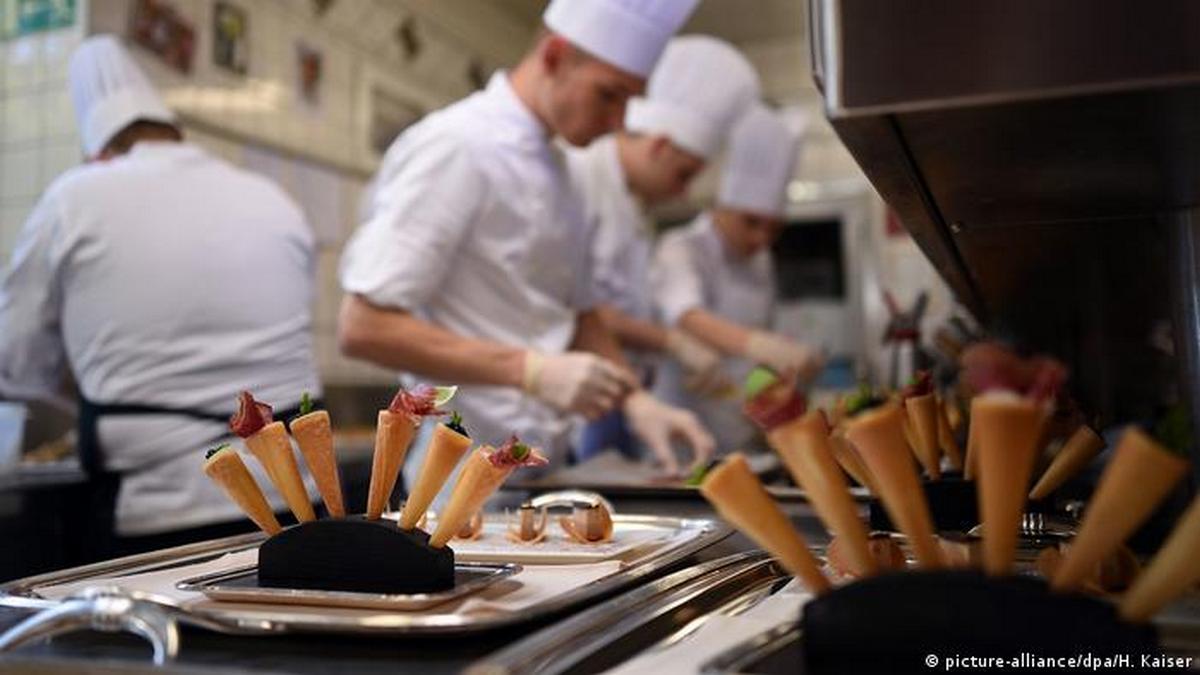Now that the restaurants are full again, Germany is facing an unexpected problem: no chefs. But how to find staff if a chef earns twice as much as a painter? More than 17,000 chefs are needed.
The menu of the Lux restaurant in Münster is varied: grilled specialties, fresh salads, fish delicacies. The cuisine is generally quite refined, and chef Marcus Gessler is glad that people are coming to his restaurant again. He would like to return to full-time work, but so far this is not possible: because the restaurant is looking for a chef and kitchen assistant, Gessler is forced to introduce a day off in the restaurant.
The same thing happens in another of his five restaurants. Marcus Gessler was looking for staff everywhere – in the employment office, according to ads, among acquaintances and friends. But to no avail. And it’s especially hard to find a chef.
Why Germany was left without cooks
The problem is that during the blockade, a large part of gastronomy workers moved to other industries. Gessler managed to keep his staff by organizing a platform for home delivery and for private parties. But the reasons for the lack of cooks existed before the pandemic. “The problem is pay,” says Gessler, explaining that people in Germany are not ready to dig very deep in search of food and drink.
When he issues a bill for a client who has ordered a private party and asks for more than 30 euros an hour for the chef, he is usually met with critical questions, says Gessler. “At the same time, people pay the chef double and triple the price without hesitation,” he adds. Low wages in gastronomy have led to a large number of skilled workers moving to tourist centers in Switzerland, Austria or on the German island of Sult, where they earn twice as much.

Yes, the higher the demand, the more likely you are to find a salary above official rates. But a comparison of earnings in different industries shows big differences: in North Rhine-Westphalia, for example, a carpenter earns € 3,235 at a tariff rate, a painter € 4,671 and a builder € 4,755 a month.
However, the chef receives only 2249 euros, and the senior chef – 3476 euros. It is therefore not surprising that there are currently more than 17,000 vacancies for cooks in Germany, and about 46,000 vacancies in the industry as a whole.
Added to this is the fact that there are many people in the industry who work part-time and do not pay contributions to the social insurance fund. “This turned out to be a big drawback, as they were the first to lose their jobs during the blockade, although it was clear that these specialists would be needed again after the crisis,” said Ludwig Christian of the German Employment Agency.
“Too unreliable industry”
In Cologne, many restaurants have signs reading “Weekend” – in many more places than before the pandemic. Kai Schultz, owner of a restaurant in Cologne and a representative of the Old Town Gourmet Association, says he has managed to reopen his outdoor terrace. But he also announced one day off a week, because during that time he had only 40% of the number of employees left before the blockade. He managed to retain a permanent staff, but many of his seasonal employees found other jobs.
“They are unlikely to return because gastronomy has become too unreliable. People are reorienting. Until recently, working in restaurants was considered reliable, but now it no longer guarantees any safety,” says Schultz.

